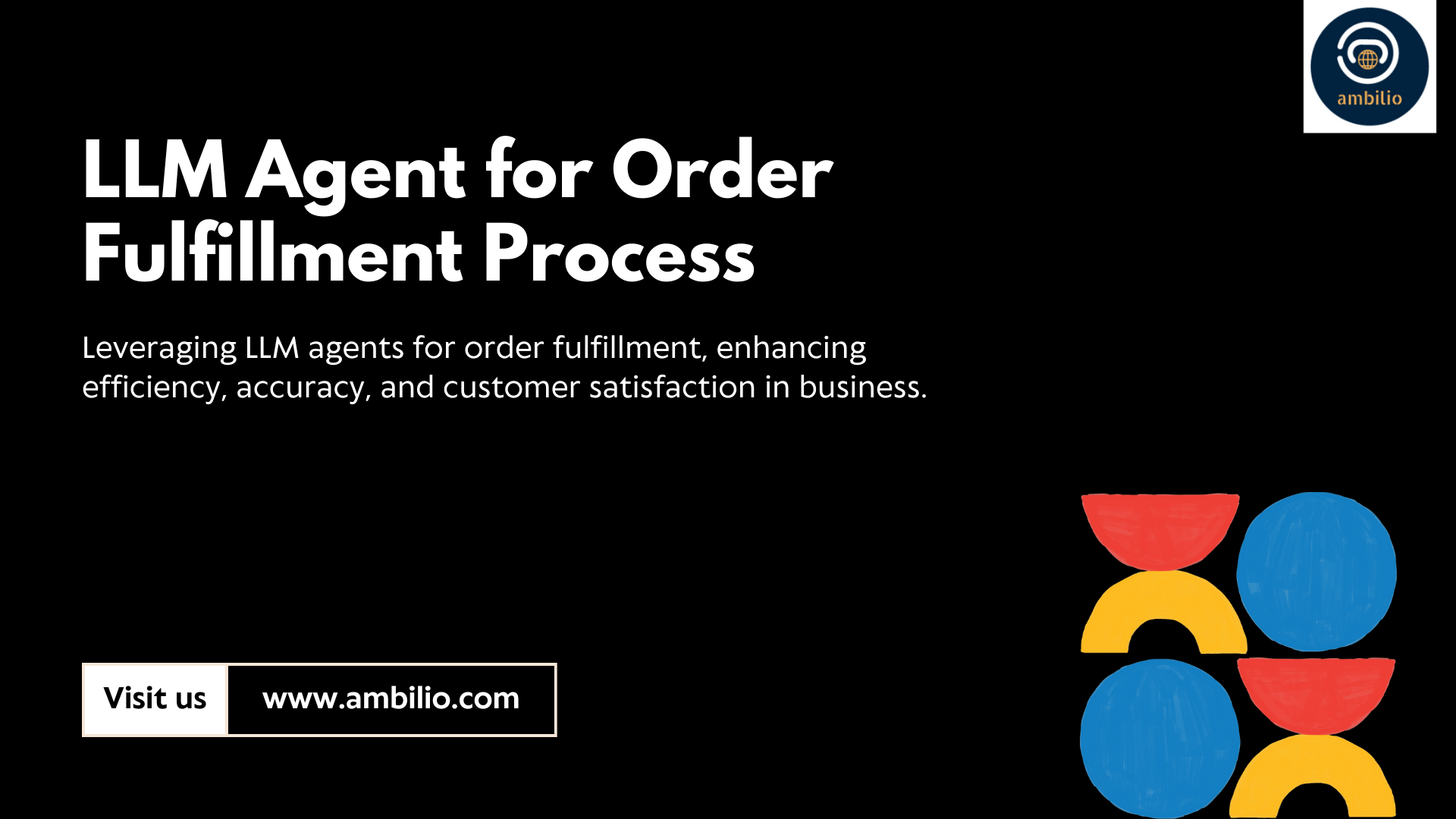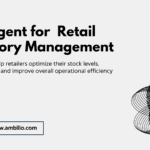In today’s fast-paced business landscape, optimizing the order fulfillment process is vital for improving customer satisfaction and retaining a competitive edge. Large Language Model (LLM) agents are increasingly recognized as powerful tools to enhance these operations. This strategic guide examines how enterprises can effectively leverage LLM agent for order fulfillment, emphasizing their benefits, strategic integration, and best practices to maximize operational efficiency and customer engagement. By implementing these insights, businesses can position themselves for success in a rapidly evolving market.
Understanding LLM Agents
LLM agents are advanced AI systems designed to understand and generate human-like text using natural language processing (NLP). These agents can automate various tasks traditionally performed by humans, enhancing operational efficiency. By processing and analyzing vast amounts of data, LLM agents can interact with customers, manage orders, and provide valuable insights into the order fulfillment process.
Benefits of Using LLM Agent in Order Fulfillment
Leveraging LLM agents for order fulfillment can provide numerous advantages for enterprises:
1. Enhanced Customer Interaction
LLM agents facilitate seamless, multi-turn dialogues, allowing businesses to address complex customer inquiries effectively. This capability enhances the customer experience by providing immediate, accurate responses, which can reduce confusion and frustration during the purchasing journey.
2. Automation of Routine Tasks
By automating repetitive tasks such as order processing, inventory checks, and responding to customer inquiries, LLM agents free up human resources for more strategic activities. This not only boosts productivity but also allows staff to focus on high-value tasks that require human insight.
3. Improved Accuracy and Decision-Making
LLM agents excel at interpreting user queries, significantly minimizing errors in order fulfillment. Their ability to analyze large datasets enhances decision-making regarding inventory management and customer preferences, enabling businesses to respond proactively to market changes.
4. Scalability
The scalability of LLM agents is particularly advantageous during peak sales periods. They can handle thousands of transactions simultaneously, ensuring smooth operations without the need for additional staffing.
5. Real-Time Updates and Communication
LLM agents can automate order confirmations and provide real-time updates on shipping statuses. This enhances transparency, keeping customers informed throughout the fulfillment process and building trust.
6. Personalization
LLM agents can personalize interactions based on individual customer behaviors and preferences. This tailored approach not only enhances the shopping experience but also increases customer retention rates.
7. Cost Reduction
By managing a high volume of inquiries and automating customer support functions, businesses can significantly reduce operational costs. Integration of LLM agents can lead to a reduction of up to 25% in customer support expenses.
8. Faster Checkout Times
Streamlined processes facilitated by LLM agents contribute to quicker checkout experiences for customers, enhancing overall satisfaction and potentially increasing transaction throughput by up to 20%.
9. Continuous Learning and Adaptability
LLM agents can learn from interactions without requiring retraining. This continuous improvement ensures they remain effective as customer needs and preferences evolve over time.
Strategic Integration of LLM Agent into Order Fulfillment
To maximize the benefits of LLM agents, enterprises should strategically integrate them into their order fulfillment processes. Here are key strategies to consider:
1. Identify Specific Use Cases
Begin by identifying the specific areas of order fulfillment that could benefit most from LLM agents. Common use cases include:
- Customer Support: Automating responses to common inquiries.
- Order Processing: Streamlining the ingestion and processing of orders.
- Inventory Management: Analyzing stock levels and predicting restocking needs.
2. Align LLM Capabilities with Business Goals
Ensure that the implementation of LLM agents aligns with broader business objectives. Consider how these agents can enhance customer experience, improve efficiency, and reduce costs. This alignment is crucial for securing stakeholder buy-in and ensuring successful implementation.
3. Invest in Robust Technology Infrastructure
Integrating LLM agents requires a strong technology infrastructure. This may include:
- APIs: To facilitate communication between the LLM agent and existing systems.
- Data Management Systems: To ensure that the agent has access to real-time data for accurate order processing and customer interaction.
4. Develop a Comprehensive Training Program
Implement a training program for employees that outlines how to effectively collaborate with LLM agents. Staff should understand the capabilities of these agents and how to utilize them to enhance their workflows. This program can foster a culture of innovation and adaptability.
5. Monitor Performance and Gather Feedback
After implementation, continuously monitor the performance of LLM agents. Collect feedback from users to identify areas for improvement. Regular evaluations can help refine the agent’s capabilities and ensure it continues to meet the evolving needs of the business.
Measuring ROI from LLM Agent in Order Fulfillment
Calculating the return on investment (ROI) from implementing LLM agents in the order fulfillment process is essential for understanding their financial impact and justifying the investment. Here are the key components to consider when evaluating ROI:
1. Cost Savings
One of the most immediate benefits of LLM agents is the reduction in operational costs. By automating repetitive tasks such as order processing and customer inquiries, businesses can decrease the need for a large customer support team. Reports indicate that companies can achieve cost reductions of up to 25% in customer support operations by integrating LLM agents. Calculating these savings against the initial investment and ongoing maintenance costs provides a clear picture of financial benefits.
2. Increased Revenue
LLM agents can enhance customer experiences, leading to higher retention rates and increased sales. By providing timely support, personalizing interactions, and streamlining checkout processes, businesses can experience increased transaction throughput—potentially boosting sales by up to 20%. Tracking sales data before and after the implementation of LLM agents will help quantify this revenue increase.
3. Improved Efficiency
The efficiency gains achieved through LLM agents can be quantified by measuring the time saved in order processing and customer support. For instance, if an LLM agent reduces the average time taken to fulfill an order by 30%, this time savings translates into a higher capacity to handle more orders without additional staffing. The resulting increased productivity should be factored into the ROI calculations.
4. Enhanced Customer Satisfaction
While harder to quantify, improved customer satisfaction often leads to repeat purchases and referrals. By monitoring metrics such as Net Promoter Score (NPS) and customer feedback, businesses can estimate the impact of enhanced interactions on customer loyalty and lifetime value. Higher customer satisfaction can lead to a more stable revenue stream, contributing positively to ROI.
5. Long-Term Value and Scalability
The scalability of LLM agents allows businesses to accommodate growth without proportionally increasing costs. As order volumes rise, LLM agents can handle the increased workload without requiring significant additional resources. This capability means that the initial investment continues to yield returns over time, particularly during peak sales periods.
Best Practices for Leveraging LLM Agents
To successfully leverage LLM agent for order fulfillment, consider the following best practices:
1. Start Small and Scale Up
Begin with pilot projects that focus on specific tasks or departments. This allows for easier management and evaluation of the LLM agent’s effectiveness. Once the pilot is successful, gradually expand its use across the organization.
2. Prioritize Data Quality
The effectiveness of LLM agents heavily relies on the quality of data they access. Ensure that your data management processes are robust and that the information fed into the system is accurate and up-to-date.
3. Foster Collaboration Between Teams
Encourage collaboration between IT, customer service, and operations teams to ensure that the implementation of LLM agents addresses the needs of all stakeholders. This cross-functional approach can lead to more comprehensive solutions and enhanced performance.
4. Stay Updated on Technology Trends
The field of AI and NLP is rapidly evolving. Stay informed about the latest trends and advancements in LLM technology to leverage new capabilities and enhance your order fulfillment processes.
Final Words
Leveraging LLM agent for order fulfillment can transform the way enterprises manage their operations, resulting in improved efficiency, enhanced customer satisfaction, and significant cost reductions. By strategically integrating LLM agents into the order fulfillment process, businesses can optimize their workflows and better meet the demands of today’s customers.
This approach not only positions companies to thrive in a competitive marketplace but also ensures they are prepared to adapt to future changes in consumer behavior and market dynamics. Embracing LLM agents is not just an operational decision; it is a strategic move that can redefine the customer experience and drive business growth.



